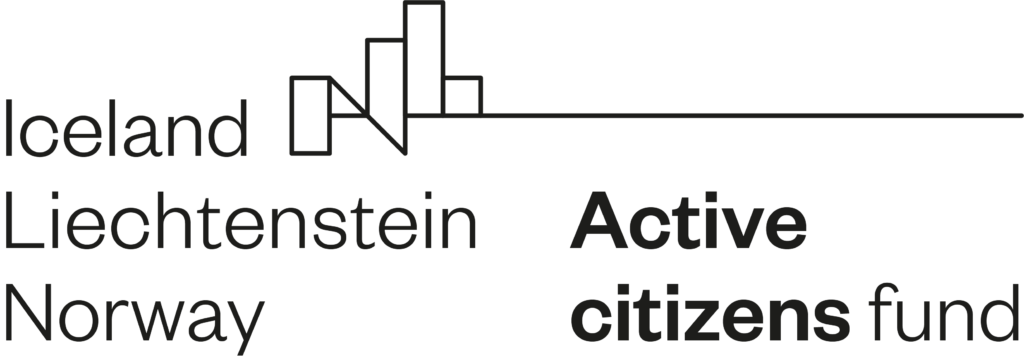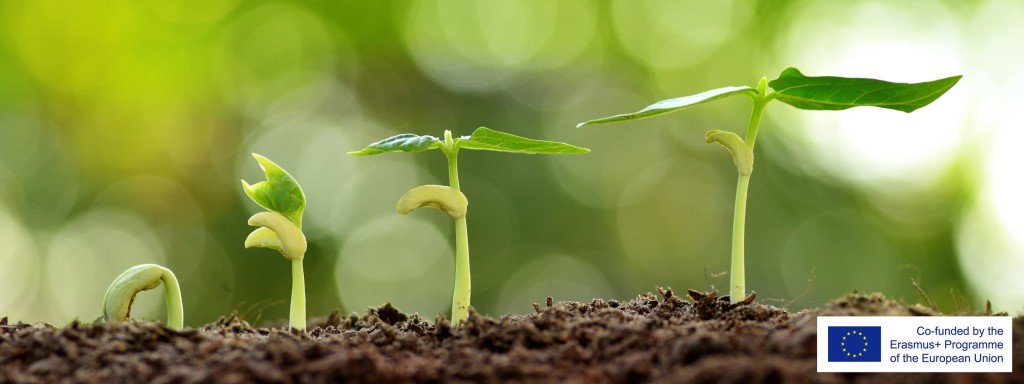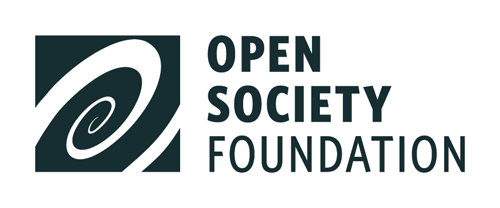Finished projects
Study trip to Norway on the integration of young people with a migrant and refugee background
Timeframe: November 2024 – March 2025
Partner organisation: YYouth
The project “Study trip to Norway on the integration of young migrants and refugees” was supported by the Fund for Bilateral Relations co-financed by the EEA Financial Mechanism 2014-2021 and the Norwegian Financial Mechanism 2014-2021. The programme administrator is the Ministry of Investment, Regional Development and Informatization of the Slovak Republic. Working together for a green, competitive and inclusive Europe. www.eeagrants.sk
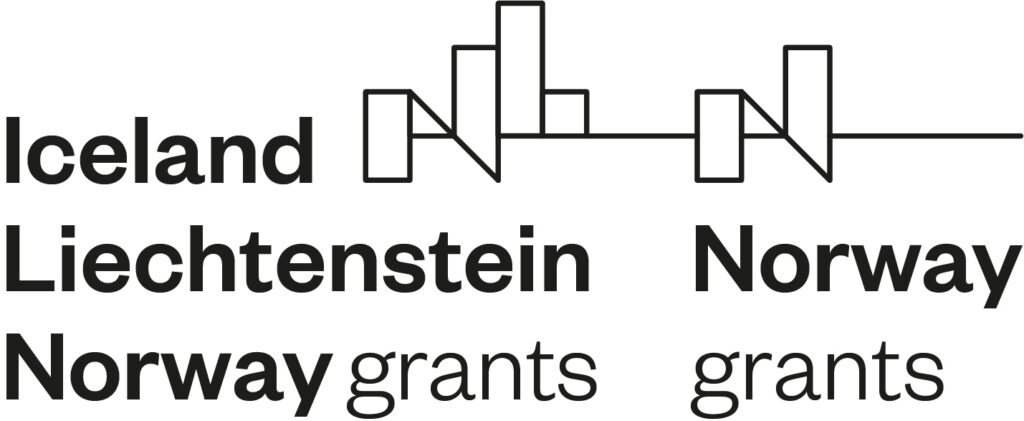
The aim of the study visit is to contribute to a more effective integration of young people with a migration and refugee background in Slovakia by identifying and transferring good practices from Norway. We focus on the analysis of support activities and measures for young people with a migration and refugee background in Norway. To this end, we will conduct 10 interviews with key actors in Norway and participate in a workshop to be implemented by the partner organisation from Norway, YYouth. The outcome of the bilateral cooperation will be a policy brief document in which we will describe the integration system in Norway and Slovakia, the challenges both countries face in the inclusion of young people with a migration and refugee background, and the findings and inspirations from the study trip (lessons learned).
Kapacity building of municipalities in refugee inclusion
Timeframe: January 2024 – December 2024
In partnership with UNHCR.
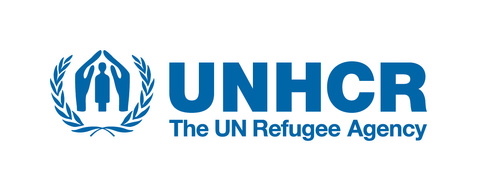
The project is based on CVEK’s knowledge and experience in the field of integration of foreigners and refugees at the local level. Within its previous activities, CVEK has mapped the situation and needs of foreigners/refugees through quantitative and qualitative research. Under this project, we established cooperation with four municipalities (Trenčín, Trnava, Senec, ŽIlina) in which we also involved local actors from among refugees/foreigners living in the city.
The project consisted of two components: 1) the development of intercultural skills of stakeholders at the local level and 2) the development of skills in the collection and analysis of statistical data on foreigners and refugees at the local level.
Under both components, we conducted a series of training workshops for all four cities. In addition, in the data component, we researched existing sources of statistical data on foreigners and refugees and prepared a manual on how to collect these data for local governments.
In 2022, after the outbreak of war in Ukraine, an unprecedented situation arose when more than 100 000 people received temporary protection in Slovakia. In order for Slovakia to respond effectively to this situation and to ensure adequate conditions in the medium and long term for children and their families from Ukraine who remain in Slovakia, it is important that key actors have reliable policy tools at their disposal. The largest part of the initial reception measures for people on the run has been implemented by municipalities. However, local governments also play a key role in supporting their further integration – they are closest to their citizens and have different roles and responsibilities related to the integration of children and their families from Ukraine.
CVEK’s role in this project is to develop, in cooperation with selected municipalities in different regions of Slovakia, comprehensive medium to long-term and sustainable strategies for the inclusion of Ukrainian children and their families, other foreigners and/or vulnerable population groups at the local level.
The project consists of two phases: 1) a research phase aimed at mapping the situation and analysing the needs in each participating city, and 2) a participatory phase for the creation of strategies for the integration of children and their families from Ukraine, foreigners and/or other vulnerable groups in each city.
A part for All – promoting the participation of young people from diverse groups
Timeframe: 1 May 2022 – 30 May 2024
The project is supported by the European Union under the Erasmus+ 2021-2027 – KA210-Youth
The project connects young people from diverse backgrounds in the Bratislava region. We focus specifically on strengthening the involvement of young people from vulnerable groups such as migrants, Roma, young people with disabilities, LGBTI young people, and young people from socially disadvantaged backgrounds. Young people from vulnerable groups face several barriers to participation (lack of skills, information, self-confidence). In the framework of the project we work directly and intensively with about 15 young people from different groups in the framework of an action group. The action group has been created together with them on the basis of the research on their situation and needs that was carried out in the initial phase of the project. The aim is to strengthen their competences and skills for better participation at local level. Together with them, we will also design a youth strategy for the local government.
Our project partner from Germany, YES Forum, will provide valuable advice and consultation during the project.
Preventing radicalisation of young people at local level – training and capacity development of actors
Timeframe: April 2023 – December 2023
Implemented with the financial support of the Ministry of Justice of the Slovak Republic under the subsidy programme for the promotion, support and protection of human rights and freedoms and for the prevention of all forms of discrimination, racism, xenophobia, anti-Semitism and other manifestations of intolerance.
This project is a follow-up to our successful participatory project Radicalisation and Extremism Prevention Mechanism – Police and Young People Together, in which we created a mechanism for preventing radicalisation of young people at local level together with a group of young people and experts and practitioners.
In the current project, we are focusing on raising awareness among the professional public and educating professional groups in the field of preventing radicalisation of young people. The main objective of the project is to raise awareness of our prevention mechanism among different actors at local level who are interested in implementing measures to prevent radicalisation of young people but do not know how to proceed. In the framework of 5 workshops for local actors we will provide them with inspiration as well as concrete “guides” and methods on how to approach the prevention of youth radicalisation, who to involve and how to do it.
The main objective of the project is to create a “roadmap” for the integration of the refugees from Ukraine and a supportive consultation mechanism for local governments to help them to cope effectively and in the long term with the current unprecedented situation. The roadmap describes all the steps that need to be taken to support the integration of refugees. It includes measures in different areas of integration, such as data collection, a first response system upon the arrival of refugees, the provision of information, the provision of services, etc. Our aim was to make this ‘roadmap’ available in the form of a website www.integration.sk and a consultation mechanism to all municipalities hosting refugees.
The target group of the project were municipalities, their elected representatives, as well as their organizational units (education, service providers, community organizers, cultural departments, etc.) and other actors at local level (e.g. NGOs, communities, etc.).
Mechanism of prevention of radicalisation and extremism – the police and youth together
Period: 1 October 2021 – 31 Marca 2023
Project ‘Mechanism of prevention of radicalisation and extremism – the police and youth together’ is supported from a programme ACF – Slovakia funded by the Financial Mechanism EEA 2014-2021. The programme is administered by the Ekopolis Foundation in partnership with Open Society Foundation Bratislava and Carpathian Foundation.
The project aims to contribute to a change of paradigm – from repression to prevention of radicalisation of youth. We will conduct a research using both quantitative and qualitative methods exploring potential for growing support of extremist ideologies and state of the art with respect to prevention targeting the youth. In the next phase in order to foster participation of young people we will create a working group composed of representatives of relevant institutions and young people. Based on the research findings the working group will design a mechanism of prevention of radicalisation of youth. Its draft will be consulted with young people across the country in consultation workshops. Together with the working group members we will advocate on various levels of public administration for the mechanism to be implemented.
The project will directly involve young people as consultants. The project will also benefit from the expertise of the leading expert on radicalisation and prevention from Norway.
Minorities in Slovakia are often perceived as sources of various threats which also affects policy making (e.g. strict migration policy, refusal to adopt registered partnerships for same sex couples, impossibility for new religious communities to be officially registered, proposals to curb Roma birth rate). Our main goal is to contribute to a change of the current discourse through minority policy monitoring, evaluation and analysis. We also aim to provide feedback to policy makers and point out how minority policies can be made all the while respecting human rights principles and human dignity. As part of the project we will publish two issues of our critical magazine Minority Policy in Slovakia.
The project explores integration of foreigners in Slovakia, availability of integration services and perception of integration by foreigners themselves and by the majority population.
The research rolls out in three phases:
1) identification of integration tools on various levels of public administration – using both quantitative and qualitative methods (questionnaire distributed to district capitals and individual in-depth interviews with stakeholders on the local level) we explore availability and accessibility of integration services on municipal level;
2) foreigners´ perception of integration services, their availability and accessibility – using both quantitative (representative survey) and qualitative methods (individual in-depth interviews);
3) attitudes of the majority population towards foreigners, potential support for different migration and integration policies – using both quantitative (representative questionnaire survey) and qualitative (focus groups) methods
All three phases will result in a comprehensive publication and will serve as a point of departure for advocacy activities targeting stakeholders at all levels of public administration.
The two-year international project Social Inclusion of Learners (SoIL) project focuses on promoting inclusive education across several EU countries. The aim of the project is to share proven methods of inclusive education and individualized teaching. CVEK is it the project´s partner in Slovakia and organizes events to share know-how from abroad to teachers and educational stakeholders in Slovakia. In October 2017, the SoIL conference in Bratislava took place. In February, 22nd-24th, 2018, a multidisciplinary seminar for teachers will take place. Other project activities are planned for 2018.
The project is coordinated by the Austrian organization atempo. Other partners include Schule im Aufbruch from Germany, RIX Reasearch and Media University East London from the UK, Gemeente Maastricht – Maastricht from the Netherlands and Casa Corpului Didactic – a teaching center at the Romanian Ministry of Education
Current project information is also available at: https://http://www.soil-project.eu/
You also have a chance!
Program to support Roma applicants for the University of Economics in Bratislava
Implementation period: academic year 2017/2018
CVEK in partnership with the University of Economics accept applications to the program You also have a chance! for school year 2017/2018. The aim of the program is to provide equal opportunities for Romani applications in accessing quality university education of economics.
This first university affirmative action program in Slovakia shall contribute to addressing major educational gaps between Romani and non-Romani population.
Deadline for submitting application is January 15, 2018. You can download the application here – Ajtymassancu_2018.
Please feel free to contact us at ajtymassancu@cvek.sk
StrongLab – Towards Stronger Labour Inspection Cooperation
Duration of the project: February 2017 – July 2018
Donor: International Visegrad Fund and the Ministry of Foreign Affairs of the Kingdom of the Netherlands
Partners: Multikultural Center Prague (leading partner), Fundacja „Nasz Wybór“, AnBlokk Kultúra-és Társadalomtudományi, Charitable Foundation „Zaporuka“
The labour intensive industrial and agriculture sectors in the V4 have experienced a significant increase in labour migration from Ukraine as well as from other European states. Labour migration (both non-EU and EU) poses a number of challenges for the regulation of labour markets (e.g. undeclared work), particular localities and for migrant workers with little knowledge of their rights (labour exploitation). Whereas labour mobility increasingly reaches transnational aspects, regulatory bodies (labour inspectorates, NGOs, trade unions usually) work mostly at the national levels. In spite of the incentives for more transnational cooperation (e.g. Enforcement of Posting Directive), there has been an insufficient support network in cross-border cases involving “extreme” labour rights violations.
The project will first analyse patterns of labour migration and rights violations of immigrant workers in the V4 with special regard to Ukraine as a sending country. Country-specific reports will fill gaps in providing up-to-date information on labour rights violations and possible remedies, also focusing on the shady role of intermediary practices in recruiting, leading to the exploitation of migrant workers. Second, on the national levels, the project will strengthen incentives for cooperation among labour inspections, NGOs and other actors providing assistance to migrant workers. In Ukraine, the involvement of new actors in the support of migrant workers will be sought. On the international level, the project would create fora for experience sharing of good practices and joint action.
Labour migration from Ukraine into the V4 states has had a growing importance in public debates. Many V4-based employer associations have been calling for migration liberalization to offset the lack of workers. Liberalisation of labour migration for non-EU migration from Ukraine and other countries, however, remains controversial in the V4 states while less so for EU mobility. There is a pressing need for international exchange in order to find regional, socially and legally acceptable solutions, institutionalizing the cooperation and regular exchange of labour inspections and other important actors. There is an interest in such cooperation on the part of V4 labour inspections due to such cases as the posting of temporary Ukrainian workers by Polish companies to Czechia.
Complex Instruction Program – the case study of Hejökeresztúr school
Period of implementation: March – April 2016
Donor: Open Society Institute (OSI)
Through the short-term project supported by the Open Society Institute CVEK carries out a research at the primary school in the Hungarian village Hejőkeresztúr. It has been already 16 years since the Hejökeresztúr teachers started to implement the methods of Complex Instruction Program. Thanks to this approach, the school which is attended by 73% of children coming from socially disadvantaged backgrounds (out of which 60% face extreme poverty), ranks above average nationally and succeeds in involving all of its pupils in the learning process. The main project aims are to conduct a case study of the school and to organize a seminar focused on transferability of good practices into the Slovak educational system.
Encouraging municipalities engagement in refugee and migrant integration: good practices from Norway
Encouraging municipalities engagement in refugee and migrant integration: good practices from Norway
Period of implementation: February – April 2016
Donor: The project “Encouraging municipalities engagement in refugee and migrant integration:
good practices from Norway” is funded ´(total budget of 8.442,00 EUR) by the NGO Fund which is part of the implementation of the EEA Financial Mechanism 2009-2014. The fund is administered by the Open Society Foundation. The project “Encouraging municipalities engagement in refugee and migrant integration: good practices from Norway” aims at exchanging knowledge, technologies, know-how and good practices between subject in the Slovakia and subjects in donor states and international organizations.
refugee integration. Current refugee crisis and following reactions of political representatives show that municipalities in Slovakia are not ready to accept migrants; nor are they ready to adopt inclusive policies ensuring social cohesion that could prevent migrants and refugees from being refused and excluded by the host populations. The project aims to encourage municipalities and build their capacities in the field of migrant and refugees’ inclusion, use good practices from Norway as an inspiration for municipalities in Slovakia and raise awareness of various stakeholders about the importance of inclusion of various population groups (including migrants and refugees) in the life of the local communities.
The project is implemented in a partnership with Norwegian Institute for Urban and Regional Research.
Integration is a multidimensional and long-lasting process that should begin straight after one’s entry to the host country – for asylum seekers and other migrants cultural and social integration is essential. The project seeks to create so called intercultural guide to the life in Slovakia that will make integration of refugees and other migrants easier. The guide will be based on real experiences of migrants living in Slovakia and will be published in several language versions (both printed and online).
The project is funded by the Open Society Foundation NOS/OSF via their program Call for Humanity.
Encouraging Municipality Stakeholders’s Engagement in Promoting Refugee Integration and Diversity
Implementation period: January 2016 – December 2016
Donor: U.S. Embassy Bratislava
The project aims to cultivate public debate and to reduce negative attitudes towards refugees and help municipalities better understand current refugee situation. It also sets out to build capacities of local authorities in these topics by training and further cooperating with local leaders in 7 municipalities in Slovakia. We will hold two intensive workshops for municipality workers and local activists aimed at awareness raising and sensitization to the refugee issues. One will involve participation of a U.S. expert on refugee issues. Aftewards we will hold a public event and a school outreach event in each participating municipality to target broader audience. Whenever possible, all activities will involve active participation of local refugees.
Everyone should have a chance!
Partner organization: Roma Advocacy and Research Centre
Implementation period: 1 January 2016 – 30 June 2017
Donor: Think Tank Fund and Roma Initiative Office of the Open Society Foundations
Anchored in human rights paradigm, Everyone should have a chance! project seeks to challenge political and public discourses securitizing and constructing Roma as threats to the majority.
Political discourse feeds on presumptions of causality between Roma ethnicity and certain attributes (e.g. laziness, predisposition to criminal behaviour, etc.) and use them to justify repressive measures in order to score political points. Using social science research and promotion of positive examples of Roma inclusion we aim to debunk the myths of ethnicity being linked with particular behaviours and to propose feasible measures to increase Roma employment. Our advocacy strategy will be based on partnerships with stakeholders that could potentially implement the proposed measures.
For 12 months we will host a Roma Research Fellow who will participate both in research and advocacy segments of the project.
Inclusive Schools – Learn and Live Together in Democracy
Contractor: Open Society Institute (OSI)
Period of realisation: April 2014 – January 2016
The project is conducted in cooperation with Romanian (FRCCF), Argentinian (CIPPEC) and Mexican (Vía Educación) partners and its main aim is to identify good practices in primary school education in the respective countries. The project focuses on the schools that are attempting to put inclusive education principles into practice. Based on the project methodology three primary schools per each country were selected. With the help of qualitative research methods the overall philosophy of the schools, their capacity to accommodate difference, their attitude towards children, teaching methods and school’s communication towards parents and wider community is examined. Project outputs are three case studies per each country that are to be seen on the project website www.schoolforeveryone.org.
Qualitative Evaluation Study on the Implementation of the Project “Progress – Investing in the Early Years of Children – Promoting Social Innovation and Roma Integration”
Donor: Roma Education Fund (REF)
Period: March 2015 – June 2015
CVEK was selected to conduct an external evaluation of the project “Progress – Investing in the Early Years of Children – Promoting Social Innovation and Roma Integration.” The project was implemented from January 2013 through December 2014 by the Office of the Plenipotentiary of the Slovak Government for Roma Communities in cooperation with the Roma Education Fund (REF) and the Slovak Governance Institute (SGI). The project was financially supported by the European Commission under the PROGRESS program. Experts from CVEK are to carry out a qualitative research of the implementation and impact of the said project. Final report will contain an analysis of risks and lessons learned and will propose recommendations for the future implementation of similar projects in Slovakia or abroad.
Integration of migrants on the local level: capacity building of local actors
Donor: European fund for integration of third-country nationals
Perido: 1 April 2014 – 30 June 2015
ZMOS in cooperation with CVEK experts provides assistance to five selected municipalities in the field of migrant integration.
The project’s main objective is to improve local actors’ know-how and attitudes when implementing integration policies on the local level.
Furthermore, the project facilitates drafting and implementation of local integration strategies in five selected municipalities.
Main activities include
– information days, public discussions, short films, conference;
– education: trainings of municipalities’ representatives, publication of a guidebook for drafting local integration strategies;
– pilot implementation of local integration policies in five selected municipalities;
– support and coordination of ativities of municipalities in the field of migrant integration.
More information about the project and activities is available on www.projektbuk.sk.
 |
The project is funded by the European Union from the European Fund for Integration of Third-Country National for 2007 – 2013. Solidarity and Management of Migration Flows. |
etnicity a kultúry
811 08 Bratislava
e-mail: info@cvek.sk
© 2025 CVEK created by volar.name graphic by Jakub Švrček


